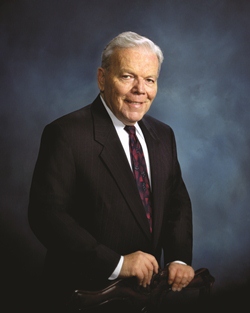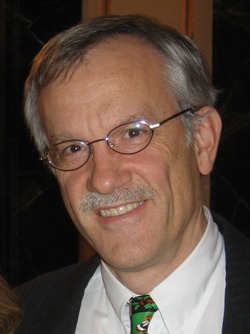 C. DAVID MOLINA, MD, MPH, was born September 7, 1926, the only son of Conrad and Josephine Molina. He grew up in Yuma, Arizona until he came to California for college. He attended San Diego State College, where he met his wife, Mary, and they graduated together in 1951. He taught sixth, seventh, and eighth grades at Yuma Indian School. Later, he also taught at Mark Twain Elementary School in Long Beach before attending medical school.
C. DAVID MOLINA, MD, MPH, was born September 7, 1926, the only son of Conrad and Josephine Molina. He grew up in Yuma, Arizona until he came to California for college. He attended San Diego State College, where he met his wife, Mary, and they graduated together in 1951. He taught sixth, seventh, and eighth grades at Yuma Indian School. Later, he also taught at Mark Twain Elementary School in Long Beach before attending medical school.
Dr. Molina received his medical degree from the California College of Medicine (the precursor to the University of California, Irvine School of Medicine). He opened a private internal medicine practice following a preceptorship at St. Mary Medical Center in Long Beach. In 1962, Dr. Molina developed Long Beach’s first Intensive Care Unit at Pacific Hospital. He remained as the director of ICU until 1976. He maintained an interest in critical care and became a fellow of the American College of Angiology. Soon after, Dr. Molina became the director of the emergency department at Pacific Hospital, a position he held for 21 years. He was also a founding member in the California chapter of the American College of Emergency Medicine. In addition, Dr. Molina received a grant to develop Long Beach’s mobile emergency medical care system and trained the first firefighter paramedic teams for the City of Long Beach in 1971.
Seeing changes on the horizon, Dr. Molina enrolled in the Master of Public Health program at UCLA in 1969 and received his MPH with an emphasis in medical administration in 1970. Dr. Molina’s first experience with managed care came when he became a consultant with General Medical Centers Health Plan in Pomona, where he worked for six years in the areas of HMO organization and administration.
In 1985, Dr. Molina created Molina Medical Centers and received a contract with the Department of Health Services under the new Primary Care Case Management (PCCM) program. Within five years, Molina Medical Centers became the largest PCCM contractor in the state, with 12 staff-model offices and 10,000 members. Molina Medical Centers received its Knox-Keene license in 1994—becoming the first PCCM in 10 years to make the transition from partial risk to full-risk contractor. Under his tenure as president and CEO, Molina Medical Centers grew to more than 105,000 members. Molina’s provider network included 29 staff-model offices with an additional 8,000 providers in eight counties. In 1995, Molina Medical Centers was awarded the Mainstream Medi-Cal contracts for both Riverside and San Bernardino counties.
Dr. Molina passed away on December 8, 1996. At the time, he and his wife had been married for more than 40 years. Mary passed away November of 2012. They are both survived by their two adult sons and three daughters—Mario, John, Martha, Janet, and Josephine, as well as their spouses and children.
For nearly 35 years, Dr. Molina was a health care leader in California. His career reflects the innovations that have characterized the changes in health care and his legacy remains through his children and the organization he founded—Molina Healthcare, Inc., a now publicly-traded, FORTUNE 500 company.
